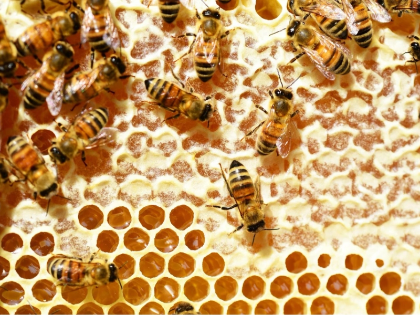Vitamin K and Cancer Prevention: What the Research Says
1.Knowledge of Vitamin K A fat-soluble vitamin, vitamin K is essential for many different body processes, especially bone health and blood coagulation. Found in green leafy vegetables, K1 (phylloquinone) and K2 (menaquinone), it exists in two main forms: fermented foods and animal products. Although vitamin K is clearly important for coagulation, new studies point to possible effects on cancer prevention and treatment.
2.According to the Mechanism of Action Research, vitamin K could affect the development of cancer by means of multiple pathways. It has been demonstrated to control cell growth, induce programmed cell death, and stop angiogenesis—the development of fresh blood vessels supplying tumors—as well as to promote apoptosis. By influencing these systems, vitamin K might enhance the body's inherent defenses against tumor development and help stop the spread of cancer cells.

 5.Vitamins K and Bone Integrity Furthermore relevant for cancer prevention is the interaction between vitamin K and bone health. Common in cancer patients are osteoporosis and bone metastases; so, general health depends on keeping strong bones. Known to support bone mineralization and density, vitamin K could enable cancer patients' risk of fractures to be lowered. Thus, maintaining appropriate vitamin K consumption could help both to enhance bone health and cancer prevention.
6.The Part Vitamin K Plays in Cancer Treatment Vitamin K is under research for possible use in cancer treatment going beyond prevention. Certain studies have indicated that vitamin K might improve the effectiveness of some chemotherapy therapies and lower adverse effects related to cancer treatment. Though more clinical studies are required to provide clear results, research published in "Frontiers in Pharmacology" suggests that vitamin K2 may enhance the efficacy of therapy for leukemia and other cancers.
5.Vitamins K and Bone Integrity Furthermore relevant for cancer prevention is the interaction between vitamin K and bone health. Common in cancer patients are osteoporosis and bone metastases; so, general health depends on keeping strong bones. Known to support bone mineralization and density, vitamin K could enable cancer patients' risk of fractures to be lowered. Thus, maintaining appropriate vitamin K consumption could help both to enhance bone health and cancer prevention.
6.The Part Vitamin K Plays in Cancer Treatment Vitamin K is under research for possible use in cancer treatment going beyond prevention. Certain studies have indicated that vitamin K might improve the effectiveness of some chemotherapy therapies and lower adverse effects related to cancer treatment. Though more clinical studies are required to provide clear results, research published in "Frontiers in Pharmacology" suggests that vitamin K2 may enhance the efficacy of therapy for leukemia and other cancers.
 7.Food Sources of Vitamin K Including enough of rich dietary sources in your meals will help you to maximize the possible advantages of vitamin K. Excellent providers of vitamin K1 are green leafy foods including kale, spinach, and broccoli. Along with dairy products and egg yolks, fermented foods such natto supply vitamin K2. Including a range of these foods in your diet can help to maintain general health and guarantee appropriate vitamin K consumption.
8.Suggested Consumption and Issues Although vitamin K is usually safe and well-tolerated, one should take into account the recommended dietary allowances (RDAs) for various sexes and age groups. While adult women need roughly 90 micrograms daily, adult men should strive for about 120 micrograms. Before greatly increasing their vitamin K consumption, people on anticoagulant drugs should see their doctor since it may conflict with blood-thinning drugs.
7.Food Sources of Vitamin K Including enough of rich dietary sources in your meals will help you to maximize the possible advantages of vitamin K. Excellent providers of vitamin K1 are green leafy foods including kale, spinach, and broccoli. Along with dairy products and egg yolks, fermented foods such natto supply vitamin K2. Including a range of these foods in your diet can help to maintain general health and guarantee appropriate vitamin K consumption.
8.Suggested Consumption and Issues Although vitamin K is usually safe and well-tolerated, one should take into account the recommended dietary allowances (RDAs) for various sexes and age groups. While adult women need roughly 90 micrograms daily, adult men should strive for about 120 micrograms. Before greatly increasing their vitamin K consumption, people on anticoagulant drugs should see their doctor since it may conflict with blood-thinning drugs.
 9.Future Study Areas Although the amount of knowledge on vitamin K and cancer appears encouraging right now, further research is required to completely grasp its function in the prevention and treatment of cancer. Constant clinical studies seek to define the processes by which vitamin K works and ascertain ideal amounts for cancer patients. As our knowledge of this vitamin develops, new dietary guidelines and oncology therapy approaches may result.
10.Review of Vitamin K's Function in Preventing Cancer In the framework of cancer prevention and treatment, vitamin K is becoming a quite crucial nutrient. Its ability to control cell development, affect death, and maintain bone health makes it an important part of a good diet. Particularly for some forms like prostate and lung cancer, epidemiological research point to a relationship between increased vitamin K intake and lowered cancer risk. Including foods high in vitamin K into your diet could be a proactive way to improve general health and maybe lower cancer risk as studies on this topic keep revealing.
9.Future Study Areas Although the amount of knowledge on vitamin K and cancer appears encouraging right now, further research is required to completely grasp its function in the prevention and treatment of cancer. Constant clinical studies seek to define the processes by which vitamin K works and ascertain ideal amounts for cancer patients. As our knowledge of this vitamin develops, new dietary guidelines and oncology therapy approaches may result.
10.Review of Vitamin K's Function in Preventing Cancer In the framework of cancer prevention and treatment, vitamin K is becoming a quite crucial nutrient. Its ability to control cell development, affect death, and maintain bone health makes it an important part of a good diet. Particularly for some forms like prostate and lung cancer, epidemiological research point to a relationship between increased vitamin K intake and lowered cancer risk. Including foods high in vitamin K into your diet could be a proactive way to improve general health and maybe lower cancer risk as studies on this topic keep revealing.








